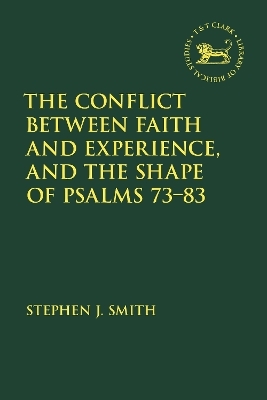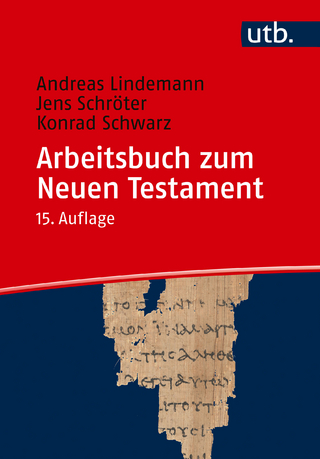
The Conflict Between Faith and Experience, and the Shape of Psalms 73–83
Seiten
2024
T.& T.Clark Ltd (Verlag)
978-0-567-70276-0 (ISBN)
T.& T.Clark Ltd (Verlag)
978-0-567-70276-0 (ISBN)
Stephen J. Smith enters the lively field of editorial-criticism of the Hebrew Psalter or Psalterexegese with this detailed investigation into the final form of Psalms 73-83. In the book, he engages scholarly disagreements over this collection's structure, the degree and nature of its literary unity, and the primary theological message(s) it communicates. Smith argues that the sequence of Psalms 73–82 - and possibly 83 – has a deliberate design that reflects a sustained focus on addressing, and resolving, a multidimensional collision between “faith” (i.e., core Israelite beliefs about God) and “experience” (i.e., the individual/community’s lived experience of God) that was precipitated by God’s prolonged absence in the Temple’s destruction (c. 586/587 BCE).
Parting ways with previous scholarship, Smith contends that a recursive organizing principle rooted in biblical parallelism structures the collection. Over the book's nine chapters, he makes the case that the editor(s) grouped its psalms into two major blocks (74-78; 79-82) of two sub-groupings each (74-76, 77-78; 79/82, 80-81) in order to develop a single topic in multiple dimensions: the severe threat that God's prolonged absence in the temple's destruction posed to the ongoing viability of various core Israelite beliefs about God, most fundamentally God's goodness. Smith makes the case that the collection is shaped to resolve this crisis by bolstering the reader’s confidence in, and commitment to, these beliefs in the face of their apparent failure.
Parting ways with previous scholarship, Smith contends that a recursive organizing principle rooted in biblical parallelism structures the collection. Over the book's nine chapters, he makes the case that the editor(s) grouped its psalms into two major blocks (74-78; 79-82) of two sub-groupings each (74-76, 77-78; 79/82, 80-81) in order to develop a single topic in multiple dimensions: the severe threat that God's prolonged absence in the temple's destruction posed to the ongoing viability of various core Israelite beliefs about God, most fundamentally God's goodness. Smith makes the case that the collection is shaped to resolve this crisis by bolstering the reader’s confidence in, and commitment to, these beliefs in the face of their apparent failure.
Stephen J. Smith is Assistant Professor of Biblical Studies and Christian Ministries at Belhaven University, USA.
List of Abbreviations
List of Tables
Acknowledgements
1. Introduction
2. The Current State of Scholarship
3. Psalm 73: “God is good to Israel”—Despite Conflicting Evidence
4. Psalms 74-76: Yahweh is Zion’s Great King—Despite Conflicting Evidence
5. Psalms 77-78: The Lord is Gracious and Compassionate—Despite Conflicting Evidence
6. The Literary Unity of Psalms 73-78
7. Psalms 80-81: The Lord Will Hear and Deliver—Despite Conflicting Evidence
8. The Literary Unity of Psalms 79-82 and the Shape and Message of Psalms 73-82
9. Conclusions
Bibliography
Index
| Erscheinungsdatum | 09.01.2024 |
|---|---|
| Reihe/Serie | The Library of Hebrew Bible/Old Testament Studies |
| Verlagsort | Edinburgh |
| Sprache | englisch |
| Maße | 156 x 234 mm |
| Themenwelt | Religion / Theologie ► Christentum ► Bibelausgaben / Bibelkommentare |
| Religion / Theologie ► Christentum ► Kirchengeschichte | |
| Geisteswissenschaften ► Religion / Theologie ► Judentum | |
| ISBN-10 | 0-567-70276-6 / 0567702766 |
| ISBN-13 | 978-0-567-70276-0 / 9780567702760 |
| Zustand | Neuware |
| Informationen gemäß Produktsicherheitsverordnung (GPSR) | |
| Haben Sie eine Frage zum Produkt? |
Mehr entdecken
aus dem Bereich
aus dem Bereich
Buch | Softcover (2021)
De Gruyter (Verlag)
CHF 45,90


